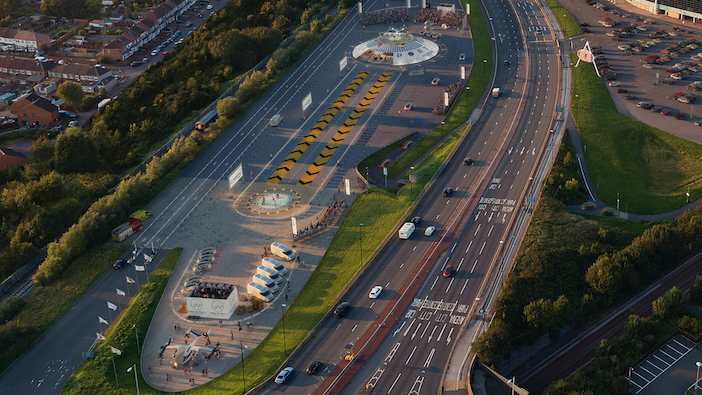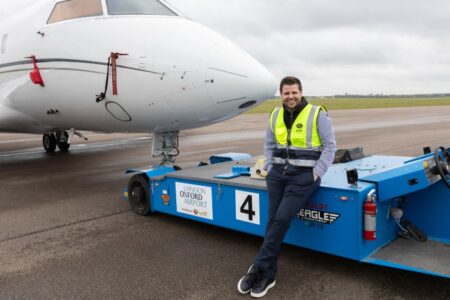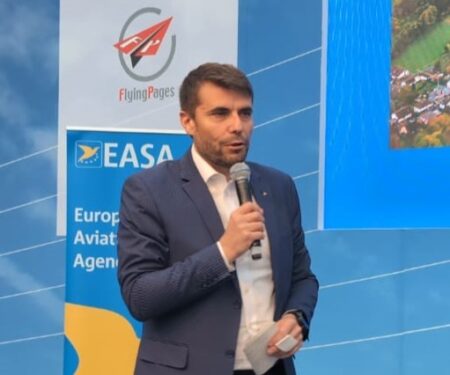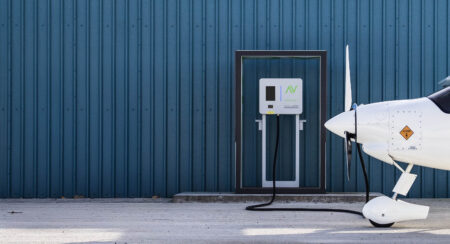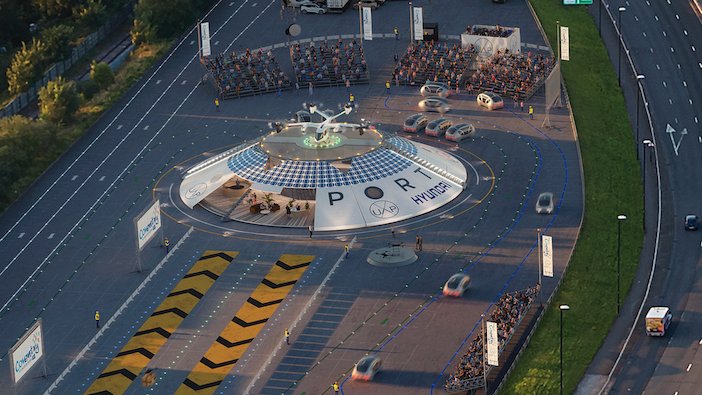
Ricky Sandhu, founder and executive chairman of Urban-Air Port said, “Cars need roads. Trains need rails. Planes need airports. eVTOLs will need Urban Air Ports. Over a hundred years ago, the world’s first commercial flight took off, creating the modern connected world. Urban Air Port will improve connectivity across our cities, boost productivity and help the UK to take the lead in a whole new clean global economy.”
“Flying cars used to be a futuristic flight of fancy. Air-One will bring clean urban air transport to the masses and unleash a new airborne world of zero emission mobility.”
Billed as the world’s smallest airport, the Urban Air Port is 60% smaller than a heliport, can be powered off-grid and uses a modular design. The modular design and off-grid power supply enables the Urban Air Port to be built and dismantled quickly to suit changing market needs, or for them to be used to deploy humanitarian aid and disaster relief.
Industry backing
The Urban Air Mobility Division of Hyundai Motor Group has also chosen Urban Air Port as its priority infrastructure partner to support its plans to create its own eVTOL aircraft and urban air mobility eco-system. Hyundai plans to commercialise its aircraft by 2028.
Pamela Cohn, chief operating officer for the Urban Air Mobility Division of Hyundai Motor Group, said, “As we advance our eVTOL aircraft programme, development of supporting infrastructure is imperative. Air-One is set to help lead the way in developing a robust, accessible and intermodal infrastructure network for future mobility.
“We are excited to be part of this partnership in the UK, and look forward to working together to create community impact and opportunity through safe, affordable, and human-centred mobility solutions.”
Trials and testing
The AIr-One site in Coventry will host live demonstrations of remote aircraft command and control, charging / refuelling and cargo and passenger loading for manned and unmanned eVTOL aircraft operating in three ways: passenger air taxi services, autonomous logistics and disaster emergency management
“Air-One provides the ability to service multiple transport requirements of the future – from disaster relief to essential and everyday supplies for citizens across the UK. These are truly exciting opportunities.”
The funding for AIr-One is part of the UK Government’s £125 million (US$171 million) Future Flight Challenge, which is funding projects to develop aviation infrastructure and systems that will enable the next generation of electric and autonomous air vehicles.


